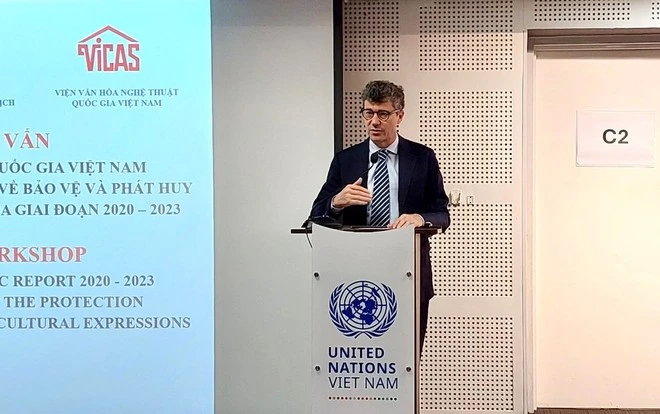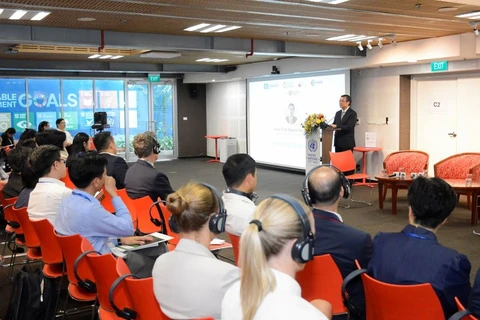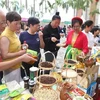
Hanoi (VNA) – A stakeholder consultation workshop on Vietnam's National Report on the implementation of the UNESCO 2005 Convention for the 2020-2023 period has underscored the need for refined policies and strategies to unlock resources and propel the growth of Vietnam's cultural industries.
The workshop, held in Hanoi on June 4, featured expert proposals and discussions aimed at aligning Vietnam's cultural development with the four relevant United Nations Sustainable Development Goals (SDGs) for 2030. These goals focus on sustainable cultural management; balanced flows of cultural goods and services, and increased mobility of artists and cultural professional; integration of culture into sustainable development frameworks; and promotion of human rights and fundamental rights to freedom.
Assoc. Prof Do Thi Thanh Thuy from the Vietnam Institute for Cultural and Art Studies (VICAS) underlined the critical role of improved policy mechanisms, calling for clearer regulations in areas like investment and funding models, tax incentives, public-private partnerships (PPPs), public services in managing and operating cultural facilities and assets, and policies for non-profit organisations.
Learning from successful practices employed by other UNESCO member states was another key point raised by Thuy. She advocated for the creation of a national data collection system for cultural industries, the branding of Vietnamese cultural products and services, a network of creative cities, and robust digital infrastructure to promote and manage cultural products in the online space.
Dr. Nguyen Phuong Hoa, Director General of the Department of International Cooperation at the Ministry of Culture, Sports and Tourism, echoed Thuy's emphasis on policy reform, saying that integrating cultural industry policies with the broader national socioeconomic development strategy is important.
Reflecting on the 2020-2023 period which saw Vietnam grappling with the COVID-19 pandemic, Hoa commended the Government's commitment to cultural development, specifically citing the 2021 Cultural Development Strategy released by the Prime Minister.
This strategy outlines a series of goals for Vietnamese culture by 2030, including increasing the value added by cultural industries to 7% of GDP and raising cultural investment to at least 2% of the annual national budget. Additionally, Hoa pointed to local initiatives like Hanoi's Resolution No. 09-NQ/TU, a policy promoting cultural industry development in the capital city to 2045.
Jonathan Baker, Chief Representative of the UNESCO Office in Vietnam, hailed the Government's dedication to the cultural sector. He acknowledged the positive policy environment established for promoting the 2005 Convention on the Promotion of the Diversity of Cultural Expressions and highlighted the robust growth observed in Vietnam's national cultural and creative ecosystem.
He also pledged UNESCO's continued technical support to Vietnam in realising the 2005 Convention and further fostering collaboration between the two sides.
The workshop underscored Vietnam's commitment to nurturing its cultural industries. By streamlining policies, fostering international exchange, and harnessing digital technologies, Vietnam aims to unlock the full potential of its cultural sector and contribute significantly to fulfilling the SDGs. The collaborative efforts between local and international stakeholders mark a significant step toward achieving sustainable cultural development in Vietnam./.






















